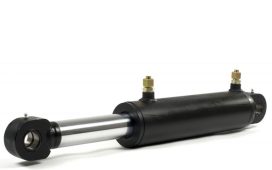The manufacturing industry is characterized by its complex operations, strict quality requirements, and the need for effective management practices. In this highly competitive sector, businesses and companies strive to achieve excellence in their processes and deliver superior products to customers.
Quality management is of immense importance in the manufacturing industry. With increasing customer expectations and intense competition, manufacturers must ensure that their products meet the highest standards of quality to stay ahead of their competitors.
One significant way to enhance management in manufacturing industries is through ISO certification. ISO (International Organization for Standardization) certification provides an efficient framework for implementing effective quality management systems. In this article, let’s take a look at how ISO certification contributes to the enhancement of quality management in manufacturing industries.
Compliance with International Standards
ISO certification demonstrates a manufacturer’s commitment to adhering to internationally recognized quality standards. ISO 9001, specifically designed for quality management systems, outlines a set of requirements that organizations must meet to obtain certification.
By aligning their processes and practices with ISO standards, manufacturing companies establish a foundation for effective quality management. This helps ensure consistency, reliability, and customer satisfaction throughout the manufacturing process.
Standardization and Documentation of Processes
ISO certification emphasizes the standardization and documentation of processes within organizations in the manufacturing industry. By clearly defining procedures, work instructions, and quality control measures, manufacturers create a systematic approach to managing quality.
This documentation serves as a reference for employees, enabling them to follow consistent practices and produce products that meet predefined quality criteria. Standardized processes enhance repeatability, reduce errors, and increase overall efficiency.
Continuous Improvement
ISO certification promotes a culture of continuous improvement within manufacturing organizations. The Plan-Do-Check-Act (PDCA) cycle, a fundamental principle of ISO standards, encourages companies to continuously evaluate and enhance their quality management systems. Through regular internal audits, management reviews, and implementing corrective actions, ISO-certified manufacturers can identify areas for improvement and proactively address quality-related issues. This iterative process continuously helps enhance products, processes, and overall quality management.

Customer Focus and Satisfaction
ISO certification places a strong emphasis on customer focus and satisfaction. By obtaining ISO certification, manufacturing companies are committed to meeting customer requirements and delivering products that consistently meet or exceed expectations.
ISO standards provide guidelines for gathering and analyzing customer feedback, measuring customer satisfaction levels, and implementing improvements based on customer insights. This customer-centric approach strengthens the manufacturer-customer relationship, enhances brand reputation, and builds long-term customer loyalty and relationships.
Supplier Management
Effective supplier management is critical for maintaining quality standards in manufacturing industries. ISO certification encourages manufacturers to establish effective supplier evaluation and management processes.
By implementing ISO 9001 or other relevant standards, manufacturers can ensure that their suppliers meet specified quality requirements. This includes assessing supplier capabilities, monitoring their performance, and finding continuous improvement throughout the supply chain. By maintaining high-quality supplier relationships, manufacturers can secure reliable inputs and deliver consistent quality products to their customers.
Risk Management and Problem-Solving
ISO certification promotes the integration of risk management and problem-solving methodologies into quality management systems. Manufacturers are encouraged to identify potential risks, assess their impact on quality, and develop preventive measures to mitigate them.
ISO standards provide tools and frameworks, such as risk assessments and root cause analysis, to systematically address quality-related issues. By proactively managing risks and resolving problems, manufacturers can minimize quality incidents, reduce waste, and improve overall process efficiency.

If your organization is a part of the manufacturing industry and you plan to get ISO certified, it’s best to speak to an ISO consulting firm to prepare for your ISO audit. If you’re looking for a trusted ISO consultancy in Hinckley, Ohio, BCS can help you!
They are an ISO certification consultancy that helps businesses from the manufacturing industry in the United States get ISO 9001 certified. Moreover, they also provide consultancy for various other ISO certifications, like ISO 9001 quality management system, ISO 13485, ISO 45001, API Q1, AS9100, and more.
They have a team of experienced ISO consultants who will guide you throughout the entire process and help you prepare for the audit. Get in touch with them now for further information.







